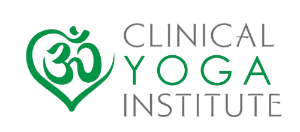Yoga is an ancient practice that has been passed down through generations, originating in India thousands of years ago. The history and philosophy of yoga are deeply rooted in spiritual beliefs and traditions, but the practice has evolved over time to encompass physical, mental, and emotional well-being as well.
The word “yoga” comes from the Sanskrit term “yuj,” which means to unite or to join. This reflects the ultimate goal of yoga – to create harmony between the mind, body, and spirit. The practice is based on the belief that by achieving this balance, one can attain a state of inner peace and fulfillment.
Traditional yoga teachings can be found in ancient texts such as the Yoga Sutras of Patanjali, which outlines the eight limbs of yoga. These limbs include ethical guidelines, physical postures, breath control, withdrawal of the senses, concentration, meditation, and ultimately enlightenment or union with the divine.
Throughout history, yoga has been practiced by sages, ascetics, and monks as a means of connecting with the higher self and achieving spiritual enlightenment. It was not until the late 19th and early 20th centuries that yoga began to gain popularity in the Western world, thanks to figures such as Swami Vivekananda and Paramahansa Yogananda.
Today, yoga is practiced by millions of people around the world for its physical, mental, and emotional benefits. From stress reduction and improved flexibility to increased strength and balance, yoga offers a holistic approach to health and well-being. Integrative medicine education has also embraced yoga as a complementary therapy to conventional treatments, recognizing its ability to promote healing and relaxation.
The philosophy of yoga emphasizes the interconnectedness of all beings and the importance of living in harmony with nature and the universe. By cultivating mindfulness, compassion, and self-awareness, practitioners can cultivate a deeper sense of inner peace and contentment.
Yoga is not just a physical exercise. It is a way of life that encourages self-reflection, self-improvement, and self-realization. Through the practice of yoga, individuals can cultivate a greater sense of self-awareness, compassion, and acceptance, leading to a more balanced and fulfilling life.
As integrative medicine education continues to evolve, the role of yoga in promoting health and wellness is becoming increasingly recognized. From reducing stress and anxiety to improving sleep and boosting the immune system, yoga offers a range of benefits that can enhance the overall quality of life.
In conclusion, the history and philosophy of yoga are rich and deeply rooted in spiritual traditions. As the practice continues to evolve and adapt to modern times, its principles of unity, balance, and harmony remain at the core of its teachings. With its emphasis on holistic well-being, yoga has become an integral part of integrative medicine education, offering a unique and effective approach to promoting health and wellness.
For more information visit:
Clinical Yoga Institute | Online Accredited Yoga Teacher Training
https://www.clinicalyogainstitute.com/
United States
Embark on your journey to become a certified clinical yoga practitioner with our evidence-based online yoga teacher training program. Tailored for mental healthcare professionals, our flexible learning schedule fosters a supportive community of like-minded peers. Earn 30.5 NASW CEUs as you progress towards becoming a skilled professional in clinical yoga.


